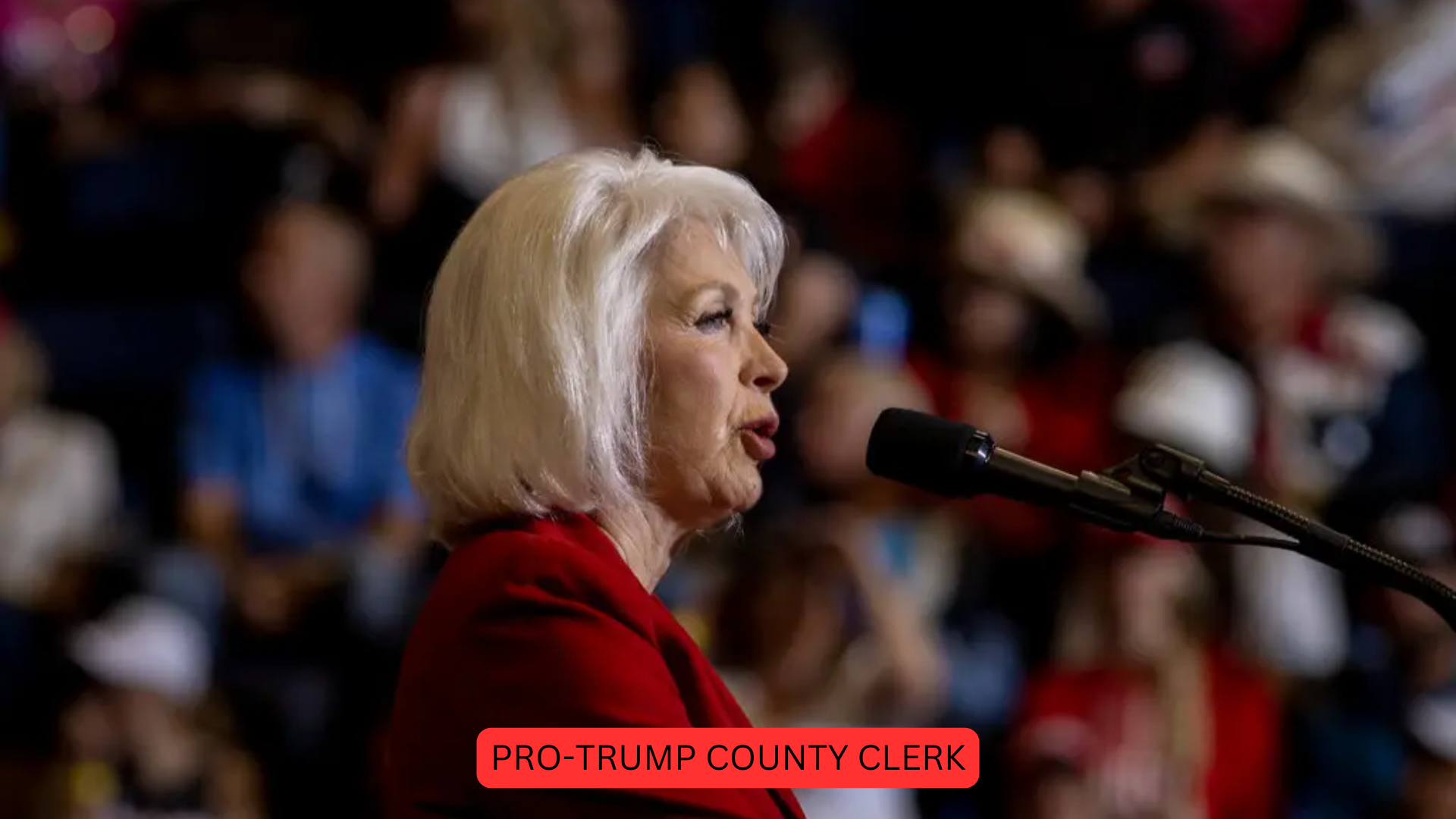In the small, picturesque town of Grand Junction, Colorado, the story of Tina Peters, a once-trusted county clerk, has taken a dramatic turn. Once seen as a diligent public servant, Peters is now at the center of a legal and political maelstrom that has gripped the nation. Her recent conviction for tampering with voting machines, a charge with profound implications for American democracy, has become a cautionary tale of how political extremism and personal ambition can lead to a dramatic downfall.
Table of Contents
The Rise of a Controversial Figure
Tina Peters wasn’t always a controversial figure. Before the events that led to her conviction, she was a respected member of the Mesa County community, known for her involvement in local affairs and her commitment to her role as county clerk. Elected in 2018, Peters was responsible for overseeing the county’s elections, a role that required both integrity and impartiality.
However, as the 2020 presidential election approached, Peters’ political views began to take a more radical turn. She became an ardent supporter of former President Donald Trump, aligning herself with his unfounded claims of widespread voter fraud. As Trump’s rhetoric escalated, so did Peters’ belief that the election had been stolen, despite a lack of evidence to support such claims.
This shift in perspective would soon lead Peters down a path that would ultimately end in her conviction.
The Unraveling Begins
Following the 2020 election, Tina Peters became increasingly vocal about her belief that the election had been rigged. Her position as county clerk gave her access to the very voting machines she believed were central to the alleged fraud. It wasn’t long before Peters began to act on her convictions in ways that would later be deemed illegal.
In the spring of 2021, Peters orchestrated an elaborate scheme to tamper with the voting machines under her jurisdiction. Believing that she was exposing a grand conspiracy, Peters used her authority to gain unauthorized access to the machines, bypassing security protocols and allowing confidential information to be copied and shared. Her actions were motivated by a desire to prove that the machines had been manipulated to change the outcome of the election.
However, instead of uncovering evidence of fraud, Peters’ actions led to a significant breach of election security. The tampered machines had to be decertified, and the cost of replacing them fell on the taxpayers of Mesa County. What Peters saw as a patriotic duty was, in reality, a criminal act that undermined the integrity of the very election system she was supposed to protect.
The Investigation and Arrest
As news of the tampering began to spread, state and federal authorities launched an investigation into Peters’ actions. The investigation revealed a complex web of deceit, involving not just Peters but several associates who had helped her carry out the scheme. The evidence against Peters was overwhelming, including video footage, digital records, and testimony from those involved.
In August 2021, Peters was indicted on multiple charges, including tampering with voting equipment, unauthorized access to a computer system, and obstruction of a government operation. The indictment sent shockwaves through the community, as many residents struggled to reconcile the image of the dedicated public servant they knew with the criminal charges she now faced.
Peters, however, maintained her innocence. She claimed that she was being persecuted for her political beliefs and that the charges against her were part of a larger effort to silence those who questioned the legitimacy of the 2020 election. Her defense was rooted in the same conspiracy theories that had motivated her actions in the first place, further polarizing the community.
The Trial of Tina Peters
Tina Peters’ trial was a spectacle from start to finish. It drew national attention, with media outlets from across the country descending on Grand Junction to cover the proceedings. The trial was not just about the actions of one county clerk; it was seen as a referendum on the broader issue of election integrity and the impact of political extremism on public trust in the democratic process.
The prosecution presented a compelling case, meticulously detailing how Peters had used her position to carry out the tampering and how her actions had compromised the security of the voting machines. They argued that Peters had betrayed the public trust, putting her personal beliefs above her duty to uphold the law.
The defense, meanwhile, sought to portray Peters as a victim of political persecution. They argued that she had acted out of a genuine belief that she was defending democracy, not undermining it. They also attempted to cast doubt on the credibility of the evidence, suggesting that it had been manipulated or misinterpreted.
Despite these efforts, the evidence against Peters was too strong to overcome. After weeks of testimony and deliberation, the jury found Tina Peters guilty on all charges. The verdict was a decisive blow to Peters and a stark reminder of the consequences of allowing political ideology to override legal and ethical obligations.
The Aftermath and Sentencing
Following the guilty verdict, Tina Peters faced the prospect of a lengthy prison sentence. The judge, in delivering the sentence, emphasized the gravity of her actions, noting that tampering with voting machines strikes at the very heart of the democratic process. Peters was sentenced to several years in prison, a punishment that reflected the seriousness of her crimes.
The sentencing marked the end of a dramatic chapter in Tina Peters’ life, but the repercussions of her actions continue to be felt. In Mesa County, the community remains deeply divided, with some viewing Peters as a martyr for the cause of election integrity, while others see her as a cautionary tale of the dangers of political extremism.
The Broader Implications for Election Security
The case of Tina Peters has had far-reaching implications beyond the borders of Mesa County. It has highlighted the vulnerability of local election systems to insider threats and the importance of safeguarding the integrity of voting machines. In response to the case, state and federal authorities have implemented new security measures to prevent similar incidents from occurring in the future.
The trial also underscored the dangers of disinformation and the ways in which conspiracy theories can drive individuals to commit illegal acts. Peters’ belief in a stolen election led her to take extreme actions that ultimately resulted in her downfall. Her case serves as a stark reminder of the need for vigilance in combating misinformation and ensuring that public officials are held to the highest standards of accountability.
A Cautionary Tale
Tina Peters’ story is a cautionary tale of how a combination of political zeal, personal ambition, and conspiracy theories can lead to devastating consequences. What began as a commitment to public service ended in disgrace, with Peters convicted of crimes that undermined the very democratic principles she claimed to uphold.
For those who supported Peters, her conviction is seen as a miscarriage of justice, a sign that the political establishment is determined to silence dissent. For others, it is a necessary and just outcome, a demonstration that no one is above the law, and that those who seek to subvert the democratic process must be held accountable.
In the end, Tina Peters’ legacy will be one of division and controversy. Her actions have left a lasting impact on her community and the broader political landscape, serving as a reminder of the fragility of democracy and the importance of protecting it from those who would seek to do it harm.
Reflections on the Current Political Climate
The case of Tina Peters is emblematic of the broader political climate in the United States, where deep divisions and mistrust in the electoral process have become increasingly prevalent. Peters is not the first, nor will she likely be the last, public official to be swayed by conspiracy theories and political extremism. Her conviction is a stark reminder of the consequences of allowing such beliefs to take hold within the ranks of government.
As the nation continues to grapple with the fallout from the 2020 election and the ongoing debates over election security, the lessons from Tina Peters’ case are clear. The integrity of the democratic process must be safeguarded at all costs, and those who attempt to undermine it must be held accountable.
The trial and conviction of Tina Peters have been a sobering reminder of the importance of upholding the rule of law and maintaining public trust in the electoral process. While the political landscape remains fraught with tension, the outcome of this case serves as a beacon of hope that the principles of democracy will ultimately prevail.
Moving Forward
As Tina Peters begins her prison sentence, the community of Mesa County, and indeed the entire nation, is left to reflect on the events that led to her downfall. For many, the case is a painful reminder of the divisions that continue to plague the country. For others, it is a call to action to ensure that such breaches of trust do not happen again.
In the wake of the trial, there has been a renewed focus on the importance of election security and the need for greater transparency in the electoral process. The case has also prompted discussions about the role of public officials and the responsibilities that come with holding positions of power.
As the nation looks ahead to future elections, the lessons learned from Tina Peters’ case will undoubtedly play a role in shaping the policies and practices that govern the electoral process. The hope is that by holding those who violate the public trust accountable, the integrity of the democratic process can be preserved for generations to come.
The story of Tina Peters is one that will be remembered for years to come, not just for the actions that led to her conviction, but for the broader implications it holds for the future of American democracy. Her case serves as a stark reminder of the importance of safeguarding the electoral process and the dangers of allowing political extremism to take root in public office.
As the dust settles on this chapter of American political history, one thing is clear: the lessons learned from Tina Peters’ actions will continue to resonate, serving as a cautionary tale for those who might be tempted to follow in her footsteps. The integrity of the democratic process is a sacred trust, one that must be protected at all costs. And for Tina Peters, the price of betraying that trust has been a steep one.









